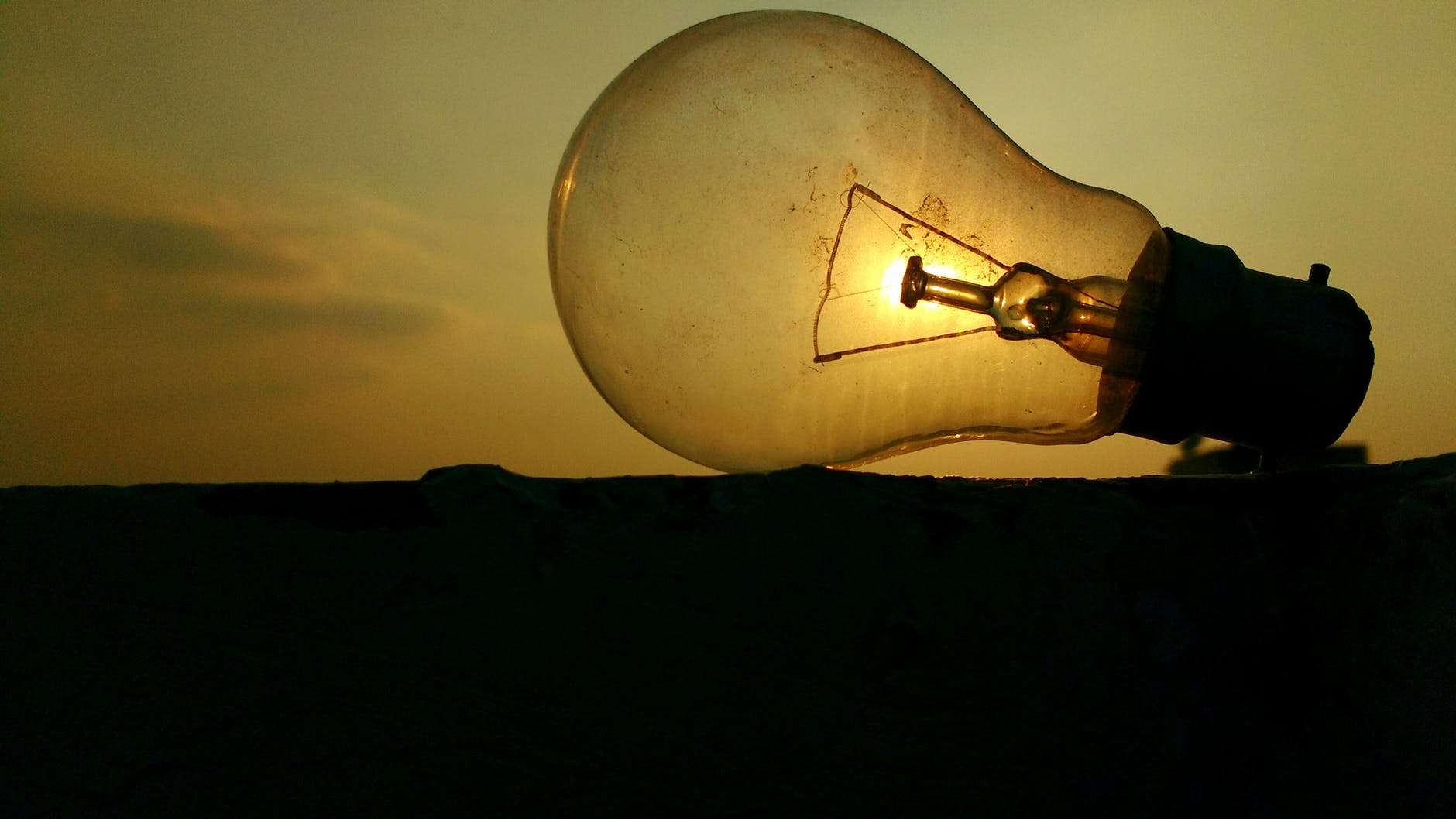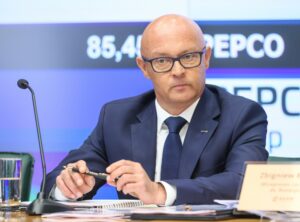„My greatest hope lies simply in the people who are in this sector, because they are very capable people. There are plenty of good employees at these larger companies. I also have a lot of confidence in Polish entrepreneurship. It always helps us in moments when there is some money to earn somewhere – in a particular industry,” says Grzegorz Onichimowski, the new CEO of PSE (Poland’s grid operator) in an interview with the „Z energią o prawie” Association.
- Firstly, the problem affects the electricity network, because this network must have the ability to operate flexibly. Secondly, the grid must sometimes take in very large amounts of energy in order, for example, to store it in various forms. It doesn’t necessarily have to be a storage facility and batteries. It can be a storage facility with heat or hydrogen.
- Another challenge is the European Union’s climate policy, specifically the emissions trading system. It has its ups and downs. Currently, prices are not too high, but it should be expected that they will rise, and with that, the competitiveness of coal-based energy against other technologies, including gas and low-emission technologies, will deteriorate even further.
- This is a challenge that may come much earlier than in 2034. The next such challenge awaits us in just a year, when individual coal units will start to drop out of the market. The EU has allowed us to extend the capacity market for these power plants, but the permission also imposes many restrictions, which means we will soon be facing a deficit.
„The challenges facing the Polish electricity system are basically the same as those facing the electricity systems of all European countries. It is a question of adequacy of the system capacity and the demand in the system. We know that the entire economy will be electrified. Now the electricity sector needs to keep up with this,” says the expert.
„Another challenge is the European Union’s climate policy, specifically the emissions trading system. It has its ups and downs. Currently, prices are not too high, but it is to be suspected that they will increase and with it the competitiveness of coal – fired energy against other technologies, both gas and low-carbon technologies, will deteriorate even more,” the expert added.
A separate issue is the need to adapt the system to variable energy sources. Firstly, the problem affects the electricity network, because this network must have the ability to operate flexibly. Secondly, the grid must sometimes take very large amounts of energy in order, for example, to store it in various forms. It doesn’t necessarily have to be a storage facility and batteries. It can be a storage facility for heat or hydrogen.
„Firstly, we need to find a system that allows us to keep the power-generating units operational when we need them for very short periods of time, for example, only when there is neither strong wind nor sunlight for a prolonged period. Then, when there is increased demand, such a reserve will have to be activated. In Poland we are dealing with such a phenomenon. Wind and sun are usually interchangeable. In connection with this, if there is a large amount of these renewable sources, then the period in which these reserve sources will need to be activated will probably shrink, especially if additional sources such as offshore wind energy are launched,” says the expert.
We know that when it comes to nuclear energy, it is supposed to serve as our insurance, something we can fall back on because it is a proven technology. We know that this is how we can produce energy. It may not be as cheap as using other technologies, but it is reliable. And thanks to this, we have a support system in a situation where other technologies may not provide us with enough energy. And of course, large blocks are about sustaining the system’s operation, while SMRs – at least in these assumptions, because we don’t have any operational ones yet – would be used both for electricity production and – using thermal energy – green hydrogen, which would replace the hydrogen already used in industry.
What about artificial intelligence in energy?
„It seems that this will be a very fundamental role, because the characteristic of today’s energy sector can be summed up in three words: initiation, decentralization and digitalization. Artificial intelligence will be introduced into this environment, where there is a very large amount of data necessary to be processed in order to achieve a certain optimization of processes,” Onichimowski says.
How to deal with the energy gap, which is expected to appear in our electricity system in 2034?
„This is a challenge that may arrive much earlier than in 2034. The next such challenge awaits us in a year, when individual coal units will begin to drop out of the power market. The EU allowed us to extend the operation of the capacity market for these units, but did so with a number of reservations, which means that we will soon be facing a deficit. We have to handle this. It will probably just mean importing energy. However, import is one thing and it is related to the economy of the entire energy system. On the other hand, such reserve power will be needed in the system at all times, just in case there would be no-one to buy the power from. We need to have the right resources to be able to do that,” Onichimowski said.
What are your main hopes and fears for the future of the Polish energy sector?
„My greatest hope lies simply in the people who are in this sector, because they are very capable people. There are plenty of good employees in these larger companies. I also have a lot of confidence in Polish entrepreneurship. It always helps us in moments when there is some money to earn somewhere, in some particular industry. People start their businesses, wanting to take advantage of this boom and earn money. In turn, the weak side of the energy sector is, of course, a bit of social policy. Because we – this is of course a remark about the previous government – tried to implement part of this social policy through simply commercial companies. And it didn’t work. The purpose of public companies is not to provide social assistance. This is what governments and the state are for. It is these entities that must take care of this,” the CEO notes.
What investments are necessary to ensure Poland’s energy security in the next 10, 20, or 30 years?
„Of course, first of all, we need to address the problem of heat and perhaps link it with system flexibility. A possible answer is a large number of local thermal power plants, which will also produce energy, allow for local balancing. In addition, they will also take away excess energy produced in renewable sources to give people carbon-free and cheap heat. The second area is, of course, the grid: both expansion and, above all, modernization. The third area is investment. This one is about low-carbon technologies. We are talking about large-scale nuclear energy, small-scale nuclear energy and energy based on local resources,” he adds.
The entire conversation with Grzegorz Onichimowski is available on the channel „Z energią o prawie”, whose patron is BiznesAlert.pl: The future of the Polish energy sector-interview with the president of PSE (youtube.com)









